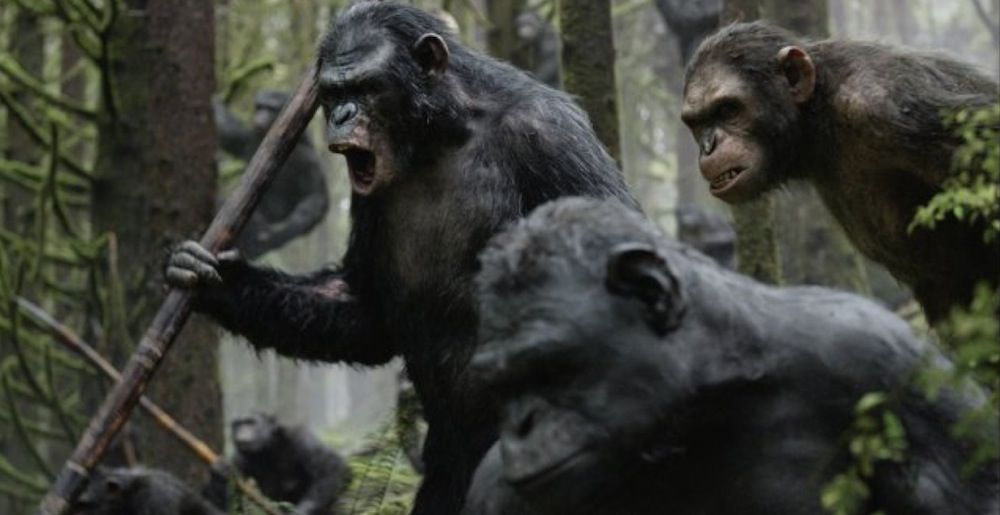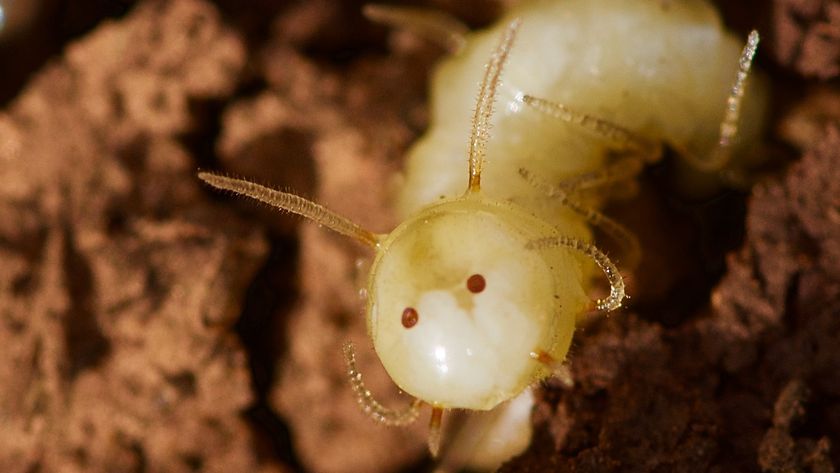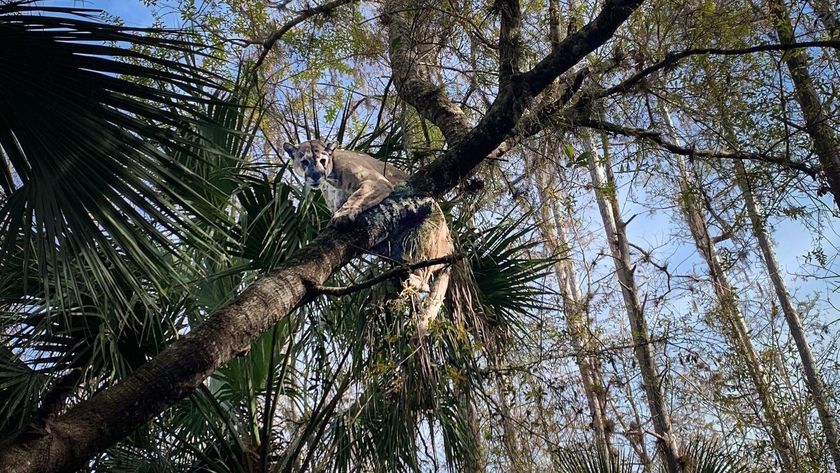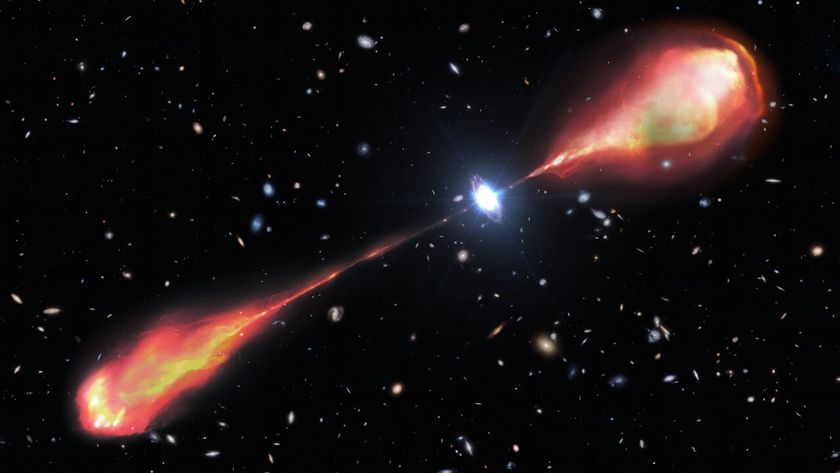
In the newly released film, "Dawn of the Planet of the Apes," humans and apes vie for dominance after a virus has made apes hyperintelligent while wiping out most humans.
But though apes riding horses, reading and writing in English, and hunting like Stone Age humans is probably far-fetched, the idea of another species or life form dominating the planet isn't, scientists say. In fact, depending on how dominance is defined, other creatures may already be in charge, experts say. [The 5 Smartest Non-Primates on the Planet]
Tough competition
With humans around, it's very difficult for another superintelligent species to evolve, said Jan Zalasiewicz, a paleobiologist at the University of Leicester.
"Humans have been quite good at removing the competition," Zalasiewicz told Live Science.
Over several million years of evolution, modern humans have already outcompeted several primates and other human species, such as Denisovans, hobbitlike creatures dubbed Homo floresiensis, and Neanderthals, he said.
Still, the movie's premise isn't too realistic. Apes are unlikely to supplant us, given that gorillas and chimpanzees are already struggling in the wild, with slightly more than 100,000 gorillas worldwide and less than 250,000 chimpanzees worldwide, according to the World Wildlife Fund. (No other primate populations exceed 100,000.) With 7 billion humans on the planet, even if 95 percent of them perished as a result of an engineered virus, the remainder would still greatly outnumber the apes.
Sign up for the Live Science daily newsletter now
Get the world’s most fascinating discoveries delivered straight to your inbox.
Planet of the pigs?
But assuming humans had managed to kill themselves off with famine, plague, war or climate change, it could take many millions of years for a new species to evolve the intelligence and abilities to dominate the Earth. After all, creatures as intelligent as humans only evolved once in the nearly 3.5 billion years of life on the planet, Zalasiewicz said.
Rats, ubiquitous pests that live on virtually every scrap of land on the planet, are already intelligent and have a highly evolved social structure. In many millions of years, oversized rats could become a hyperintelligent species that could rule the Earth. Pigs, too, have complex social structures and a high level of intelligence, Zalasiewicz said. If they evolved an ability to use tools and continued to evolve intelligence over millions of years, they could conceivably take over the planet, he said.
But realistically, the biggest threat to humans is not a naturally evolving creature, but rather artificial intelligence, he said. [Super-Intelligent Machines: 7 Robotic Futures]
"If something else intelligent arises, it will be electronic and [we'll have] made it," Zalasiewicz said.
Researchers recently reported that a machine had passed the Turing Test, exhibiting behavior that could pass as "human." (In the Turing Test, if a human interviewer cannot tell the difference between responses from a machine and a human, then the machine is said to show intelligent behavior.) And futurist Ray Kurzweil has long predicted that the singularity, a hypothetical point when machine intelligence overtakes human smarts, will be here by 2045.
Hidden rulers
On some level, humans don't dominate the Earth now.
Bacteria beat out humans in many ways, said Robert J. Sternberg, a professor of human development at Cornell University in Ithaca, New York.
"Humans only imagine they dominate the Earth. Bacteria dominate the Earth," Sternberg wrote in an email to Live Science. "There are infinitely more of them — well, almost — than there are of us. Much of our own weight is bacterial. They reproduce faster and they mutate faster. They have been around far longer than we have been and they will be around after we are gone."
And bacteria aren't the only contenders for world domination.
"Ants already control the planet," said Mark W. Moffett, an entomologist at the Smithsonian Institution in Washington, D.C., and author of "Adventures Among Ants: A Global Safari with a Cast of Trillions" (University of California Press, 2011). "They just do it under our feet."
For instance, there are many more ants than there are humans, and their total weight, or biomass, equals or exceeds that of humans, Moffett said.
They also use traditional military rules of engagement to wage war. For instance, they rely on "shock and awe," in essence swarming their enemies with sheer numbers to overcome them. Ants also throw the weakest, scrawniest members of the colony out front while keeping their "supersoldier" ants to the rear, just as the front lines in many battles are made up of the least trained and most poorly equipped soldiers, Moffett said.
This strategy has proven incredibly successful.
For instance, individual African army ants may not be scary on their own, but they create swarms that are 100 feet (30.5 meters) long and millions-strong. With their little bladelike teeth, they can swarm and devour a tethered cow — or potentially an unattended human baby — in minutes, he said.
"There is a reason why women in equatorial Africa carry babies on their back and don't put them in a crib," Moffett told Live Science.
The Argentine Ant first hitched a train ride to California in 1910. Now, a supercolony stretches across most of California, and is waging all-out war to expand its turf with another supercolony in Mexico, he said.
And while any one ant isn't all that intelligent, they can still solve extraordinary problems with their hive mind, Moffett said.
"Individual ants are the equivalent to the neurons in your brain — each one doesn't have a lot to say but in combination they can get a lot of things done," Moffett said.
Follow Tia Ghose on Twitteand Google+. Follow Live Science @livescience, Facebook & Google+. Original article on Live Science.

Tia is the managing editor and was previously a senior writer for Live Science. Her work has appeared in Scientific American, Wired.com and other outlets. She holds a master's degree in bioengineering from the University of Washington, a graduate certificate in science writing from UC Santa Cruz and a bachelor's degree in mechanical engineering from the University of Texas at Austin. Tia was part of a team at the Milwaukee Journal Sentinel that published the Empty Cradles series on preterm births, which won multiple awards, including the 2012 Casey Medal for Meritorious Journalism.
Most Popular






